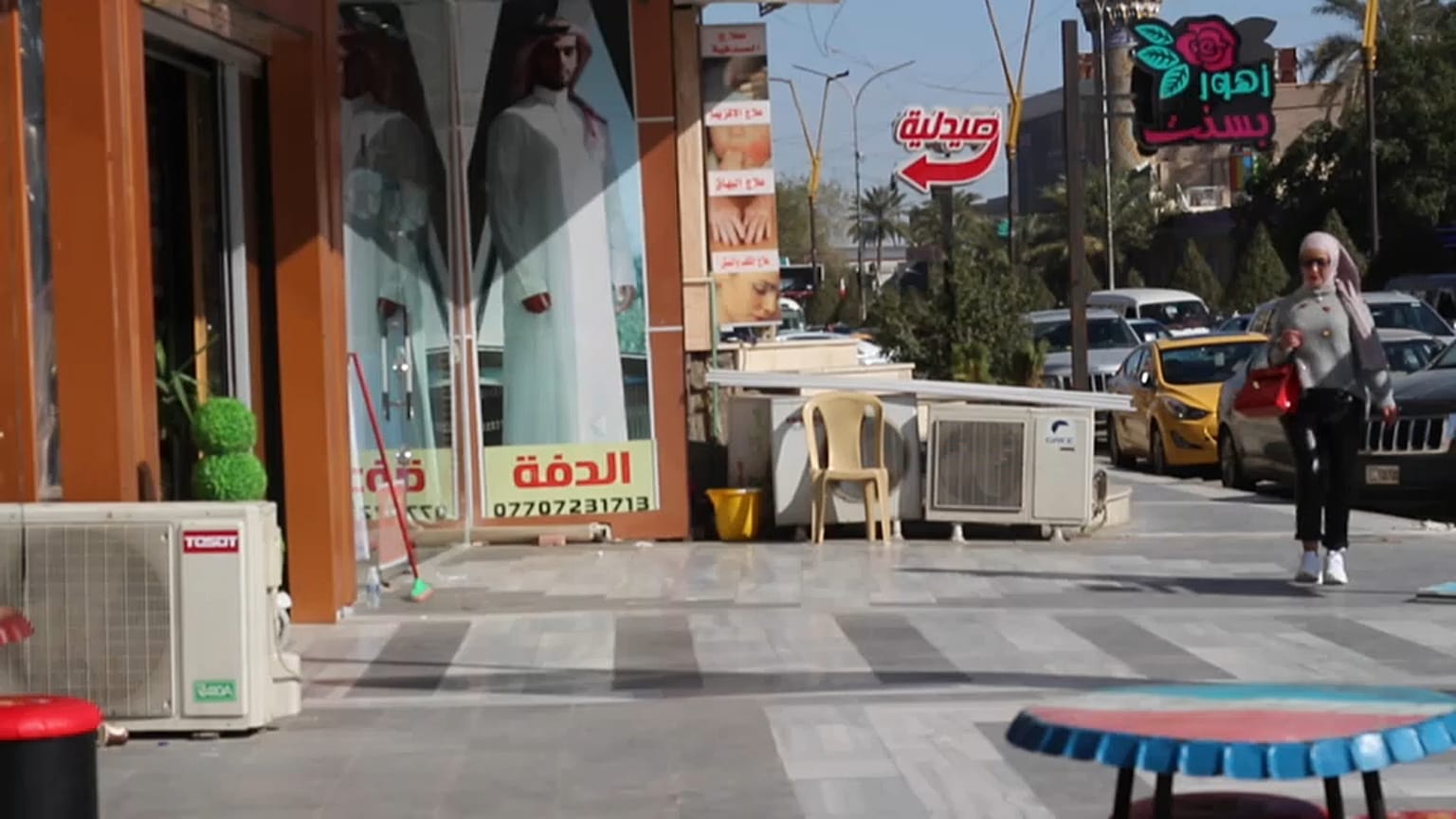Being a woman in Iraq can be restrictive; being a woman social media influencer can get you killed.
Around a year ago Tara Fares, an Iraqi Instagram influencer with millions of followers, was assassinated in Baghdad.
 ADVERTISEMENT
ADVERTISEMENT
 ADVERTISEMENT
ADVERTISEMENT
Her death was part of a string of suspicious deaths of women, ranging from a human rights activist to a plastic surgeon to a beauty salon director.
The killings created fear, particularly for female content producers. Some left the country, others stopped posting but some continued.
Death threats
Zahra Salim, who wants to start her own fashion brand someday, has about 500,000 followers on Instagram.
The 25-year-old says she received death threats after Fares was killed.
Salim is perfectly coiffed with flawless makeup, an impeccably wrapped hijab, and long, shiny red nails.
“I got threats from people who I didn't know on social media,” she says, “For example: 'We will kill you next Thursday' and 'You are the next girl’."
Zahra was not alone. Shortly after Fare’s execution, Shaima Qassem, the former Miss Iraq, posted a video where she announced, crying, that she was fleeing the country after receiving threats that, ‘she would be next'.
Zahra stopped using Instagram for a while after she received the threats.
“It really affected me,” she explains, “My family was afraid for me. For almost a whole month I left my work. I left the good parts of life because I was afraid of the threats and the situation.”
But ultimately she decided that she could not let fear dictate her life and she returned to social media.
Defying the fear
Now she is back to blogging daily talking about topics ranging from style to self-development to women’s rights.
She says she loves social media because it gives her a platform to reach people.
Mery Faris, 26, a young influencer with around half-a-million followers, sports a short bright blue haircut, combat boots and a leather jacket.
She gets constant threats and insults online for the way she looks, but she also says she has built a strong community. She began by doing make-up tutorials, but now she uses her platform to promote women’s rights, animal rights and social freedoms.
“I wanted to find work deeper than make-up, and that is working on the social problems that we face in our country,” she says.
“Especially in the field of women, there aren't freedoms, there isn't equal work,” she continues, “I wanted to focus on social media since the majority of people like to follow social media and see what's happening. They prefer it over television…because they can see themselves in the personalities of the influencers.”
She was deeply affected by Fares' death and didn’t leave her house for a week after she heard of the murder.
“I didn't know what to do? Leave? I needed to leave, I will die,” she says. “I truly felt a bad sadness.”
But she, like Zahra, decided to come back to Instagram and continue her work.
“We need to live, we need to continue,” she explains, “However long we live, even if it's to tomorrow, the last we'll do is to try and develop things. Because this is your life so you have to do something with it.”
Official silence
Hanaa Edwar, a women’s rights activist and co-founder and chair of the Iraqi-Amal Association for human rights, thinks it is disturbing that months after Fares' death, investigations have yet to produce any results. “Why this silence on women’s issues?” asks Edwar.
She remembers that an Interior Ministry official stated on Iraqi TV that he was aware of who was behind Fares' murder.
“He said very clearly that we know who killed Tara Fares,” says Edwar.
Iraq’s biggest militia groups are often connected to political parties and operate with a large degree of impunity.
Edwar believes that the reason Fares' murder remains publicly unsolved is because she was killed by a militia.
“I don't know exactly who, but it seems that it [the murder] was an intervention by one of the non-state groups that influence the Iraqi state.”
Edwar adds that she believes that Fares was killed by conservative groups who were angry at how freely Fares lived her life. But Zahra disagrees.
Zahra thinks that threats came from a fear of women taking over and succeeding in a large field, not from the fact that they were in the beauty field.
“The influencers in social media are increasing, not just in Iraq, in the whole Arab world and globally,” says Zahra.
In Baghdad, it is normal for women to wear heavy make-up, and walk around freely. But in recent years social media has transformed Iraq as it has transformed the world. More and more women have become influencers attracting advertisers along with followers.
Zahra knows that continuing to post puts her at risk. But she persists. “Life did not stop,” she says, “Maybe they scare us, but we won't give up and we will stay continuing in our field of work.”
Note: Some quotes have been corrected for grammar and clarity














